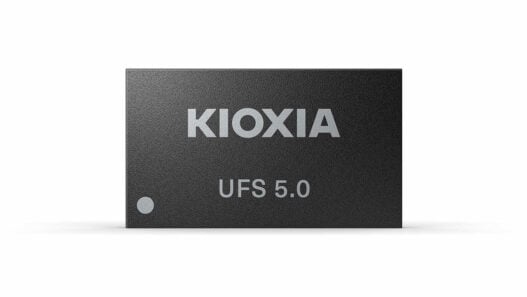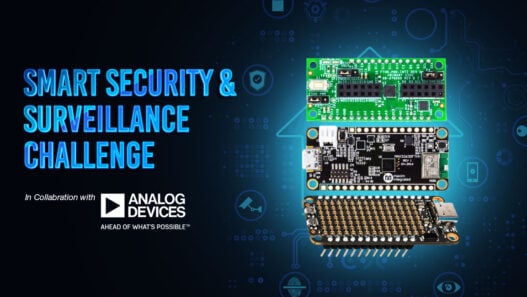Renowned partners are sponsoring prizes in seven topic-specific challenges. Along with cash prizes, the winners will receive access to a leading international network, corresponding data, startup funding, and other support valued at more than €300,000 in total. The submission phase is scheduled to end on 18th July 2016.
Information from space – Earth observation data, and especially those from the European Copernicus programme to be more precise – supports a tremendous range of possible uses by public authorities and the scientific community. Thanks to new developments in big data, cloud computing, and other areas, commercial applications and other products in many sectors of the economy are growing more and more proficient at handling huge quantities of information.
Since 2011, the Copernicus Masters competition has evolved into the leading innovation platform for promoting user uptake of Earth observation data in a commercial and societal context. It showcases new ideas and trends each year in serving as an integral part of an international innovation network. Over the past five years, Copernicus Masters has already selected a total of 39 winners from among more than 1,200 entrants from 60 different countries, who have submitted over 700 cutting-edge business ideas.
“We’re very pleased to have seen the Copernicus Masters develop into one of the engines of innovation in Earth observation in recent years. We believe that the launches of additional Sentinel satellites will also continue to drive the commercialisation of related services,” reports Josef Aschbacher, Head of Programme Planning & Coordination, Earth Observation Programmes Directorate from the European Space Agency (ESA). “This competition is a first-class initiative that gives visionary companies the boost they need to turn their creative ideas into real-world solutions.”
Based on the Copernicus services and on the data collected through the Sentinel satellites and the contributing missions, the European Earth observation programme Copernicus produces a tremendous amount of data and information on global environments. The free and open Copernicus data policy facilitates and encourages user uptake. Thanks to the Sentinel satellites’ high revisit rates up-to-date information is constantly available for any location on Earth. This presents a great deal of potential, especially for startups and SMEs.
For proof, look no further than the following examples of ideas submitted to past editions of the Copernicus Masters. CyanoLakes – Public real-time information service on blue-green algal blooms The world’s growing population and expanding large cities lead to an increasing demand of access to fresh water. At the same time, millions of lakes and other freshwater bodies around the world are threatened by harmful blooms caused primarily by blue-green algae (also known as cyanobacteria). CyanoLakes, which won the Copernicus Masters 2014 Idea Challenge, offers a public information and warning service that analyses satellite data using innovative algorithms and advanced research to differentiate between harmless and toxic algal blooms.
Through mobile applications, the public service provides weekly updates, forecasts, and real-time information on cyanobacterial blooms as a means of conserving and protecting water ecosystems across the globe. It will also benefit those members of our society who use water bodies recreationally, such as for fishing, boating, and water skiing. “Having my idea scrutinised by the expert Copernicus Masters jury was very valuable. It not only helped to precisely define the business concept, but also encouraged me to start a business,” states Dr Mark Matthews, founder of CyanoLakes (Pty) Ltd. PUNNET – An innovative service in natural resource exploration Paul Bhatia and Dr Andrew Sowter took home the grand prize in the Copernicus Masters 2014 for PUNNET, an innovative technique they developed for detecting and mapping land deformations with millimetre-level precision. This procedure is capable of identifying land subsidence and upheaval across large areas in mining regions, during groundwater extraction, and in connection with drill holes.
Among other benefits, this opens the door to many new possibilities in the construction and oil and gas industries (particularly for exploration companies), as well as for public agencies and environmental protection organisations. Energised by their win and the positive feedback they received from industry experts during the Copernicus Masters, the team behind PUNNET resolved to take the next step in founding their own company. Geomatic Ventures – a spinoff of the University of Nottingham – has now been undergoing incubation at the ESA Business Incubation Centre Harwell (UK) since March 2016.
“As a pre-startup, winning Copernicus Masters encouraged us to take the first step into the industrial realm. The credibility we gained in the process enabled us to make rapid progress,” affirms Paul Bathia, CEO of Geomatic Ventures Ltd. Building Radar – A satellite-based search engine for construction projects The startup Building Radar, the overall winner from 2015, has also become part of the international ESA BIC network. Using an algorithm its founders developed themselves, this company’s online platform identifies new building projects around the world – a key feature for customers in the construction and maintenance industries. Building Radar merges Earth observation data (including optical data from the Sentinel-2 satellite), machine learning, and data mining in an innovative way to offer an all-new service to these sectors. Here, satellite imagery makes it possible to verify online search results and track changes in specific construction projects.
“The Copernicus Masters is a unique opportunity to present your project to the international Earth-observation community, engage with experts, and make some valuable new contacts,” states Paul Indinger, managing director of Building Radar.
“We’re proud of the decisive role the Copernicus Masters is playing in the commercialisation of Earth observation services,” adds Thorsten Rudolph, CEO of competition organiser AZO. “Along with the increased interest the competition draws with each passing year, you can see it in the constant rise in the number of startups at Europe’s ESA BIC facilities and the products and services they’ve come up with based on Earth observation data.” With support from its international network, the Copernicus Masters also aids participants in realising their applications and business models.
This year’s edition will once again feature challenges and corresponding prizes to be awarded by a series of prominent partners, including the European Space Agency (ESA), the German Aerospace Center (DLR), T-Systems International, Satellite Applications Catapult, the German Federal Ministry of Transport and Digital Infrastructure, and Stevenson Astrosat.
The University Challenge, meanwhile, will be geared specifically towards students and research employees. The topics addressed by these challenges will include innovative uses of Earth observation data in mobile apps, as well as energy and the environment, smart cities and mobility, cloud computing, sustainable living and multi-data-usage. Experts from the fields of research and industry will be tasked with selecting the winner of each challenge. All of the winners will be announced on 25 October 2016 and recognised as part of a festive Awards Ceremony in Madrid.







